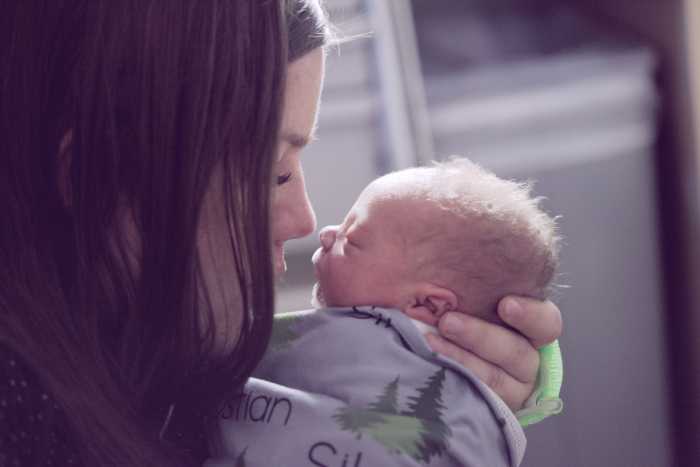Giving birth is often seen as one of the most miraculous and beautiful moments in a woman’s lifetime, but for some, it can be traumatic. A study by researchers at Tel Aviv University has found that about one in three of all post-partum women shows signs of post-traumatic stress following labor. Of the women surveyed, around 80% had opted for natural childbirth without pain relief. Just a few factors that can cause stress include having a prolonged period of labor, experiencing fear while giving birth, and having birth complications. A traumatic birth can cause conditions such as cerebral palsy or other traumatic injuries for the baby, and it’s logical that this experience should take time and support to overcome.

Waves Of Emotions
It is not surprising to learn that when complications in the delivery room lead to traumatic childbirth, midwives, and obstetricians can often encounter feelings of blame and guilt. New parents can feel this to a much greater degree, wondering what they could have done to make a difference. In fact, some traumatic births – such as those which cause a child to develop cerebral palsy – are caused by trauma during the birth itself. Feelings like guilt and blame can be illogical, but if you feel them, try using mindfulness meditation, breathing, and time spent in nature to lower your stress levels and accept all your feelings – including negative ones. Mindfulness meditation is used to ‘ride’ difficult emotions, realizing that they do not define us and that they do not last permanently.
Stages Of Grief
You may also find that you undergo some of the ‘five stages of grief’ described by Elizabeth Kubler-Ross, who specialized in the subject of death and dying. When what was supposed to be a positive experience turns out to be traumatic, we can undergo various emotions – including anger, denial, and eventually, acceptance. These stages do not take place in a set order; sometimes, you can start feeling that you have accepted that life has changed, only to go back to anger or sadness. Going through the hardest moments can be like riding a wave, knowing that another may come soon, or may take longer to arrive.
Information Is Power
Once you are past grieving and you are ready to take a proactive approach, immersing yourself in information is key. If your child has been diagnosed with cerebral palsy, for instance, then reading up on new, alternative treatments, as well as the traditional ones you may have been recommended, will help you feel more empowered. Hyperbaric oxygen therapy for cerebral palsy is a treatment that is showing great promise. This involves lying in a pressurized room or chamber with pure oxygen. This therapy is often prescribed for anemia, skin and bone infections, non-healing wounds, and the like. However, in recent years, its use has been expanded to multiple sclerosis, stroke, cerebral palsy, heart disease, and other conditions. Knowing about this and other therapies can enable you to take a multifaceted approach to your child’s condition so that you can find the combination that works best.
Social Support
Forming part of a community is important when you have been through trauma. Joining pertinent groups comprising parents who have been through similar experiences can help you feel like you are not alone. It will also enlighten you on everything from useful resources to excellent specialists and treatments of interest. You can find this support by attending group events or by joining online support forums.
One of the reasons that birth can be so traumatic is that most women expect that things will go as planned. An experience such as cerebral palsy arising from medical negligence or accident can be painful and stressful, and it can take time before you feel strong enough to start taking necessary action. Take time to grieve if you feel sad or angry, and once you feel you are ready, arm yourself with information so you can make the very best decisions for your child.










